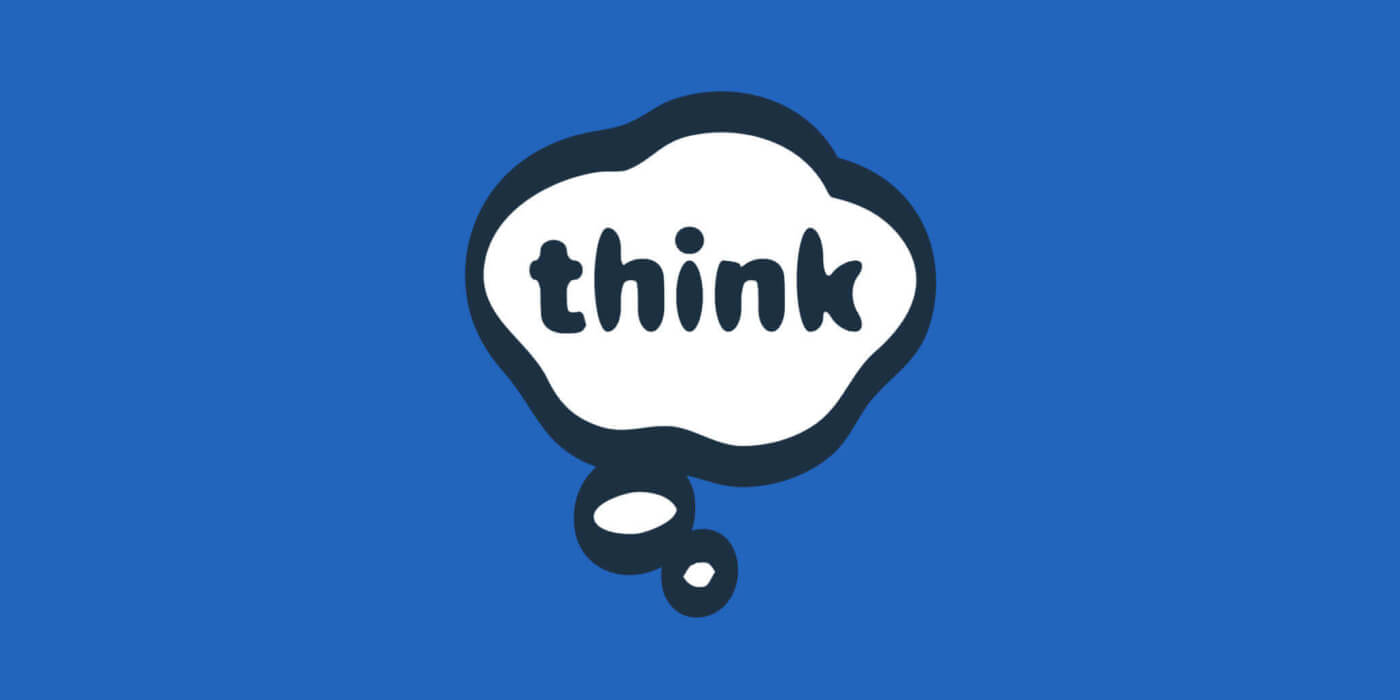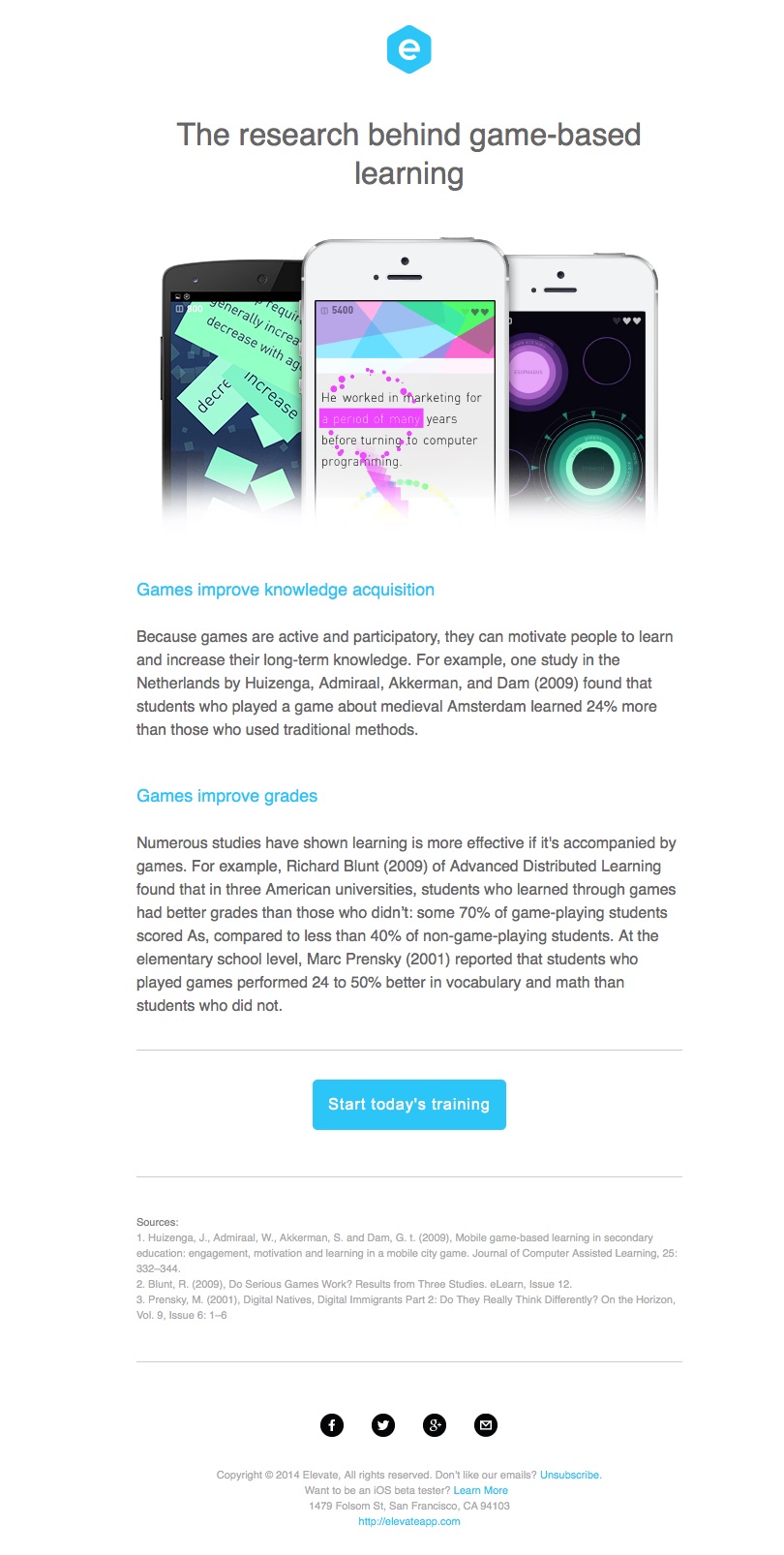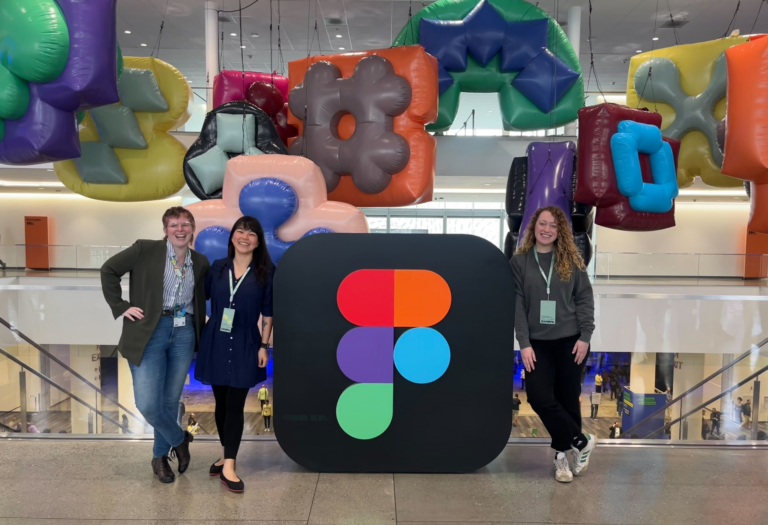Elevate Your Audience

The end of the year is Best of… season on the internet and if you can find a few trusted sources, you can generally find some nice things you may have missed while you were busy having a life. I’m always curious to see who Apple has awarded their best apps of the year awards to, as they’ve had a pretty good track record in the past—Instagram (2011), Day One (2012), Duolingo (2013)—all apps on my phone that have provided me great value.
This year’s selection is Elevate, a “brain training” game, and I can see why it earned the award. I’ve always been skeptical of this genre ever since the I saw Nintendo’s Brain Age and more recently Lumosity. They seemed terribly gimmicky and the purported benefits were…a little too good to be true. This post isn’t about debating that point, though.[1]
What caught my attention was the email that Elevate sent me a week or two after I installed it, highlighting the research behind game-based learning. With a background in Instructional Design and Simulation Design, they didn’t have to sell me. What I found intriguing, though, is that this email was targeted at the general public; anyone who’s downloaded this free app. There are two main points I want to make about this.
Provide Value
At this point, nobody should be shocked that signing up for an account with a free app results in email from the publisher. Some of us even have convoluted systems for avoiding the onslaught of spam this produces. Sometimes, though, those emails are actually valuable or at least enlightening. Elevate’s email is a great example of this. At the basest level, they want to remind you about the app so you keep playing. Fine. But it’s how they do this that matters. Their email is attractive and concise. It provides a very clear reason why I should continue using the app, backs it up with data, and then presents a call to action. In short, it makes its point and then gets out of the way. A nice implementation of what could have been an annoying (and unrequested) email.
Know Your Customer / The Value of Research
The other thing that struck me about this email was the serious emphasis on some pretty hard-core research. You don’t see a lot of free app-based “don’t forget about me” emails that are footnoted with academic and peer-reviewed journals. We’re all about evidence-based design at Think Brownstone, so this is right up our alley. What’s fascinating is that we’re not the intended audience here; it’s our parents and cousins and neighbors—everyday people—not industry wonks. What can we make of this?
First off, I think it’s reinforcement for respecting your users, knowing your customers. Maybe you don’t assume everyone is drinking your Kool-Aid. Perhaps they actually question the validity of your claims. For me, presenting this data gives me a lot more confidence in the people producing Elevate. I don’t know what kind of scientific rigor went into the production of each aspect of the game, but knowing they’re at least aware of the tenets of game-based learning and are willing to share that information give me a lot more faith in their design.
Secondly, I would take this very public discussion of research as support for the concept that the general public is interested in, and hungry for, data. Too often companies (even some of our clients) are of the mind that they know best and their audiences will simply accept whatever they put forth. Or, that their users should be insulated from the complexities that underlie their service. As a company focused on making people smarter, Elevate seems to get that their audience might want to go deeper on the issue of education. If their app was about making life easier and less complex, maybe this in-depth discussion wouldn’t be suitable…but it isn’t and therefore this approach makes sense. Those who don’t care will forget that email in moments. Those who are interested in learning more—engaged users—will welcome the information and likely form a much better opinion of the service.
Takeaways
In the end, Elevate’s email reinforced for me the value of knowing and respecting your audience and their goals. We talk a lot about designing for the intersection of business needs, user goals, and technological capabilities. All three of those need to be considered if you’re to have a successful product or service. Ultimately though, fantastically successful endeavors (award-winning ones) seem to put the user’s goals in the spotlight, with technology and the business playing supporting roles. The lesson? Provide value to your audience, help them achieve their goals, and they’ll become faithful customers.
- If that interests you though, read the footnoted articles from the Wikipedia page on brain training. There are some good studies in there. ↩




